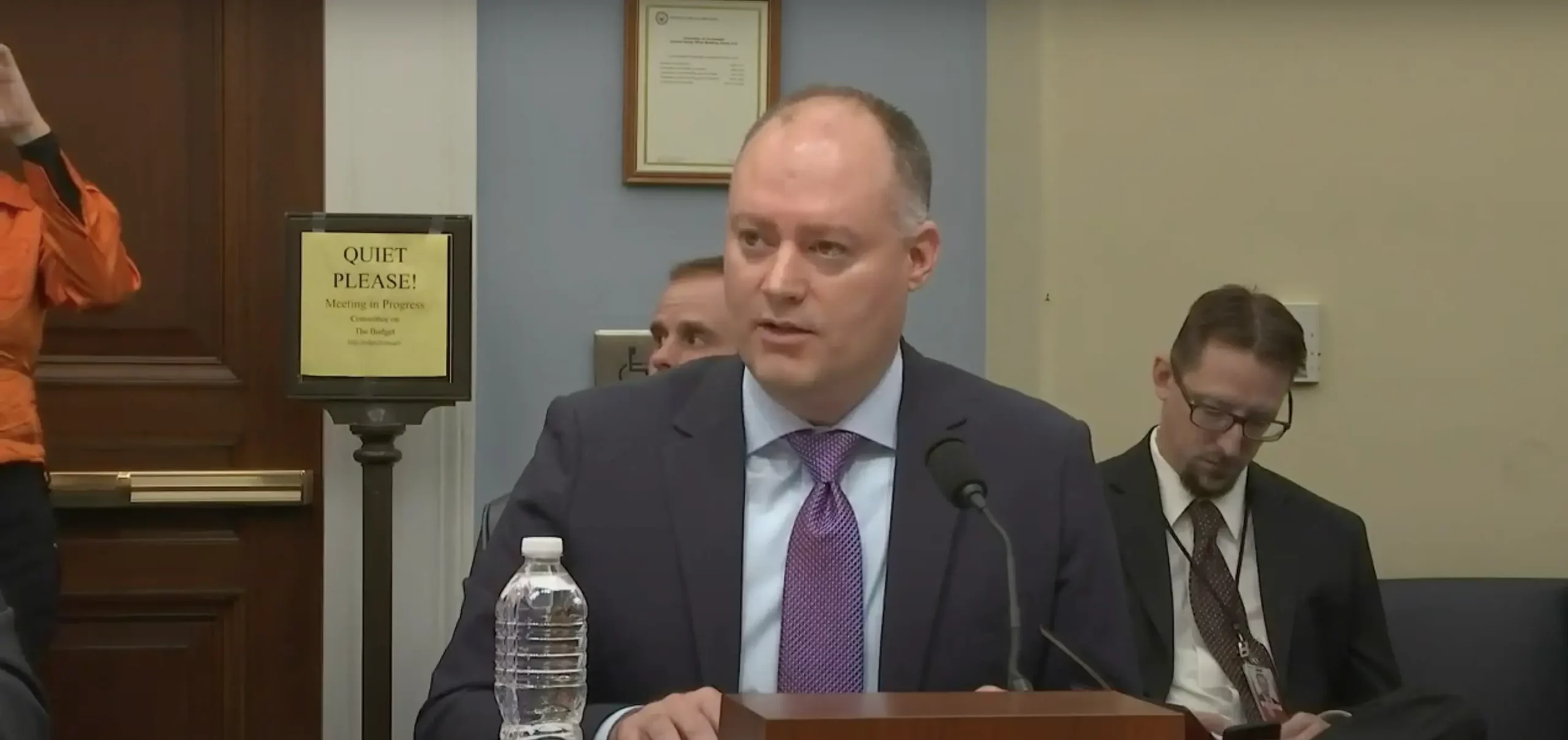Washington, DC, October 31, 2019 – Today, Fireside CEO, Josh Billigmeier, testified before the House Select Committee on the Modernization of Congress. The hearing was entitled Congress and the Frank: Bringing Congressional Mailing Standards into the 21st Century.
“I want to thank Chairman Kilmer, Vice Chairman Graves, and the members of this committee for inviting me here today,” said Fireside CEO Josh Billigmeier. “I’m honored by the opportunity to testify before the committee, and I’m encouraged by the proposals brought forth this morning to help bring the Franking Commission into the 21st Century. Fireside is at the forefront of emerging technologies on Capitol Hill, including experimenting with artificial intelligence and machine learning to help offices manage the onslaught of inbound communication from constituents. We are also introducing technology that will be available to Members of Congress next year, to allow staff to automate the process of writing responses to constituents. It’s imperative that Congress is creating policies that not only apply today but will work for emerging technologies in the future.”
Josh’s testimony is linked here. Written testimony, as delivered to the committee, can be found below:
—
Thank you Chairman Kilmer, Vice Chairman Graves and Members of the Committee for the opportunity to speak today. My name is Josh Billigmeier and I’m the CEO of Fireside, one of the leading providers of CRM technologies in Congress. Our company provides the software that allows over 150 House of Representative offices to manage all of the incoming letters and emails from constituents, and quickly turnaround thoughtful, relevant responses.
As CEO of this company I’ve had a front row seat to understand how congressional offices operate, how they manage their mail, and how they decide when and how to communicate with their constituents. I’ve had countless conversations with members, chiefs of staff, legislative directors and correspondents and have gained a thorough understanding of the practical challenges related to franking.
There’s no doubt that we’ve seen an explosion of communication sent to Members of Congress over the last 10 to 15 years. Our software has allowed Congressional offices to take these messages in, categorize, understand and more efficiently respond to constituents. But, the rules that govern outbound communication with constituents have not fundamentally changed over the last few decades. Based on my experience, I recommend three overarching rule changes to franking.
Recommendation #1: Streamline the Franking Approval Process
Mr. Chairman imagine that you have just finished watching the State of the Union address and you want to send an email to your constituents highlighting some of the policies outlined in the speech. Your staff drafts up an email and they send it to the franking commission for approval. Your staff may have to wait for days, if not a week, to get approval by franking to send out that email.
The franking approval process often takes far too long. Congress should not have an approval process that makes something no longer newsworthy by the time they’re able to send it out. My strong recommendation is that Congress find an approval process that takes less than 24 hours for content to be sent out by email.
I don’t have all of the solutions. But I’m confident that with some changes to the approval process and the technology used to facilitate the approval process, Congress can meet this challenge.
Recommendation #2: Allow Offices to Send Multiple Follow-Up Responses to a Constituent Without Franking Approval
If 500 people in a congressional district contact their member of Congress urging them to co-sponsor legislation, the office can respond to those 500 people without needing franking approval. However, after those responses are sent, if the member then decides to co-sponsor that piece of legislation, their staff will have to get approval from franking to send an update to those 500 people letting them know that they co-sponsored the bill. And if that piece of legislation passes the House of Representatives, the office will again have to get approval from the franking commission to send out an email letting those 500 people know that the legislation was passed.
It’s my strong recommendation that regardless of how many people contact a congressional office on a policy issue or a piece of legislation, the office should have the ability to send multiple follow-up emails to the interested constituents without needing franking approval.
Recommendation #3: Create a Task Force to Study How Franking Rules Should be Updated in Light of Emerging Technologies
I predict, within the next three years, Members of Congress will have access to two new technology innovations that will dramatically improve their ability to communicate with constituents. My company, Fireside, has been experimenting with artificial intelligence and machine learning to help offices manage the onslaught of inbound communication from constituents. And we are also introducing technology that will be available to Members of Congress next year, to allow staff to automate the process of writing responses to constituents. This automatic letter writing technology can be programmed to follow all of the franking rules. So, when a member uses these automatic letter writing tools, we can ensure the content of the letter is kept within the boundaries of the franking guidelines, and therefore, we won’t need any of these letters to get prior franking approval.
The point is this, the franking rules that were created decades ago need to be updated to account for the way Congress operates now. But, Congress should also be creating policies that not only apply today but will work for emerging technologies in the future.
Thank you again for the opportunity to testify on my ideas to modernize congressional mailing standards.

